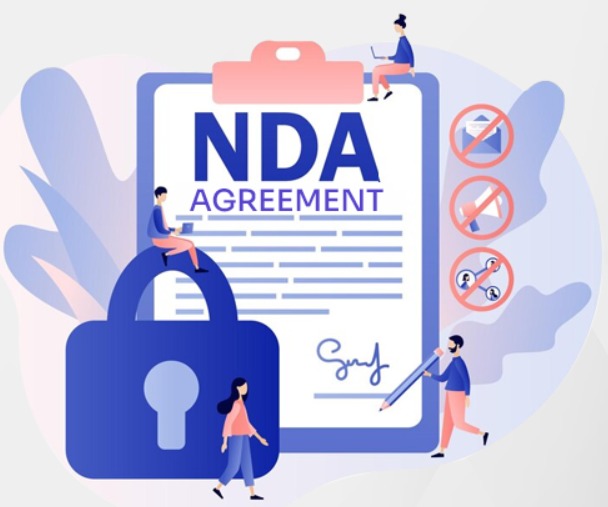In a world where more information is everywhere, keeping data safe and secret is imperative. It does not matter if you are an entrepreneur, fellow worker, or business partner in this industry; having good knowledge about the Non-Disclosure Agreement (NDA) is extremely important to secure some of your confidential data. This article explores the very basics of NDAs and why they are important, as well as how they manifest themselves in a variety of different scenarios.
What is a Non-Disclosure Agreement (NDA)?
A Non-Disclosure Agreement, commonly known as an NDA, is a legally binding contract that establishes a confidential relationship between two or more parties.
Parties use an NDA to ensure that information they exchange during their relationship stays out of the hands of unauthorized parties. In general, NDAs are very common in business-related situations, such as those relating to trade secrets and associated information that is valuable, including the methods.
Why Are NDAs Important?
NDAs are essential for several reasons:
1. Protecting Confidential Information: NDAs protect a company’s confidential information, things like business plans, marketing strategies, financial data and intellectual property. This security is critical to have a competitive advantage and prevent misuse or sharing of key information.
2. Establishing trust: With an NDA in place, parties show their willingness to keep information private which then builds and security. This trust is crucial on collaborations, partnerships and negotiations when sensitive information has to be shared.
3. Legal Recourse: Lastly, a non-disclosure agreement (NDA) serves as a legal tool for pursuing action against anyone who breaches the confidentiality. The remedies available to the party that has not breached include monetary damages, specific performance, or injunctive relief.
Key Elements of NDA
While NDAs can vary in complexity depending on the situation, they generally include the following key elements:
- Parties: The NDA should specify who the parties to the agreement are. This can include individuals, businesses or entities.
- Definition of Confidential Information: The NDA must define the confidential information in detail covering each and every aspect of the same, it has to be as specific as possible to avoid any loopholes. This clause sets as the cornerstone of the NDA.
- Obligations of Receiving Party: Typically, a confidentiality agreement will require the recipient of information to treat such information as confidential and may prohibit that party from using it for any purpose outside of what is agreed upon. It may also include some provisions on how the information is to be stored, who can use it, and how we need to destroy their return after using them.
- Exclusions from Confidentiality: An NDA may establish certain exclusions to be excluded from the confidentiality terms. The NDA might not protect information that is previously within the public domain, independently derived by the receiving party, or disclosed to a third party without having an obligation of confidentiality on his/her behalf.
- Term of Agreement: The NDA should specify the duration of the confidentiality obligation. This can range from a few years to an indefinite period, depending on the nature of the information and the relationship between the parties.
- Consequences of Breach: The NDA must explain all legal remedies available due to a breach including suing the individual responsible. This section further underlines the seriousness of maintaining confidentiality and discourages breaches.
- Governing Law and Jurisdiction: The agreement should describe the laws that would govern it, also as to specify jurisdiction if some legal dispute arises.
Why are NDA used?
NDAs are commonly employed in a wide range of scenarios to safeguard confidential information. They are frequently utilised in business partnerships to enable companies to exchange confidential information without concerns of it being disclosed. During employment, NDAs are put in place to safeguard trade secrets that employees may come across in the course of their work. Mergers and acquisitions also depend on NDAs to safeguard vital information throughout negotiations. When developing new products, NDAs are put in place to prevent suppliers or testers from misusing the information. NDAs are crucial in investment discussions to safeguard business plans and intellectual property, as well as in IP patent agreements to prevent the unauthorised disclosure of innovations. In general, NDAs play a crucial role in preserving confidentiality in various aspects of business and law.
Legal Validity of NDAs
The legal standing of Non-Disclosure Agreements (NDAs) is rooted in contract law, making them legally binding documents that enforce confidentiality between parties. When properly drafted and executed, NDAs are enforceable in court, allowing the injured party to seek remedies such as injunctions or damages if the agreement is breached. However, for an NDA to hold up legally, it must be clear, reasonable in scope, and not overly restrictive. Courts will also consider the fairness of the agreement, ensuring that it doesn’t impose undue hardship on the parties involved.
Conclusion
Non-Disclosure Agreements are powerful tools for protecting confidential information and fostering trust between parties. By clearly defining what constitutes confidential information, outlining the obligations of the receiving party, and specifying the consequences of a breach, NDAs help prevent the unauthorized disclosure of sensitive data. Whether you’re entering into a business partnership, hiring employees, or developing new products, understanding and utilizing NDAs can be essential to your success and security.
